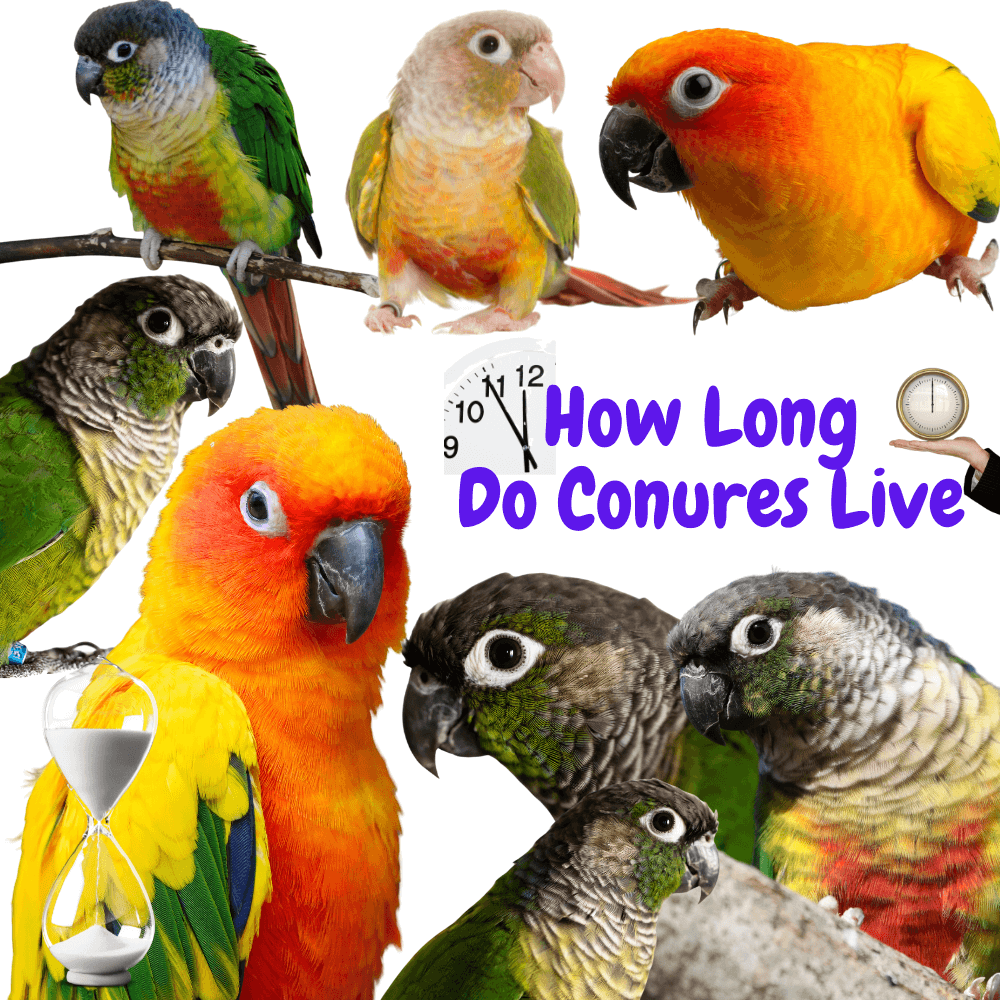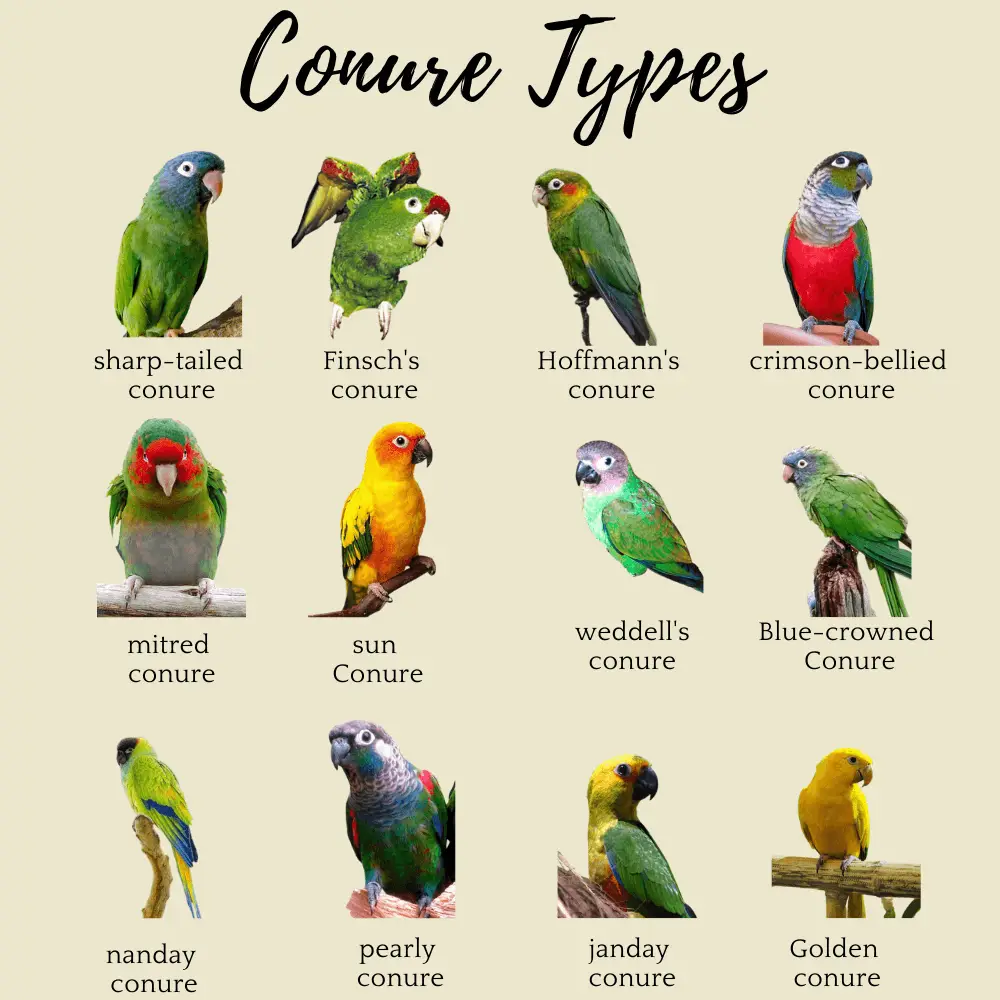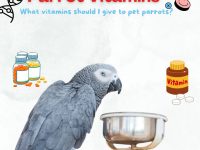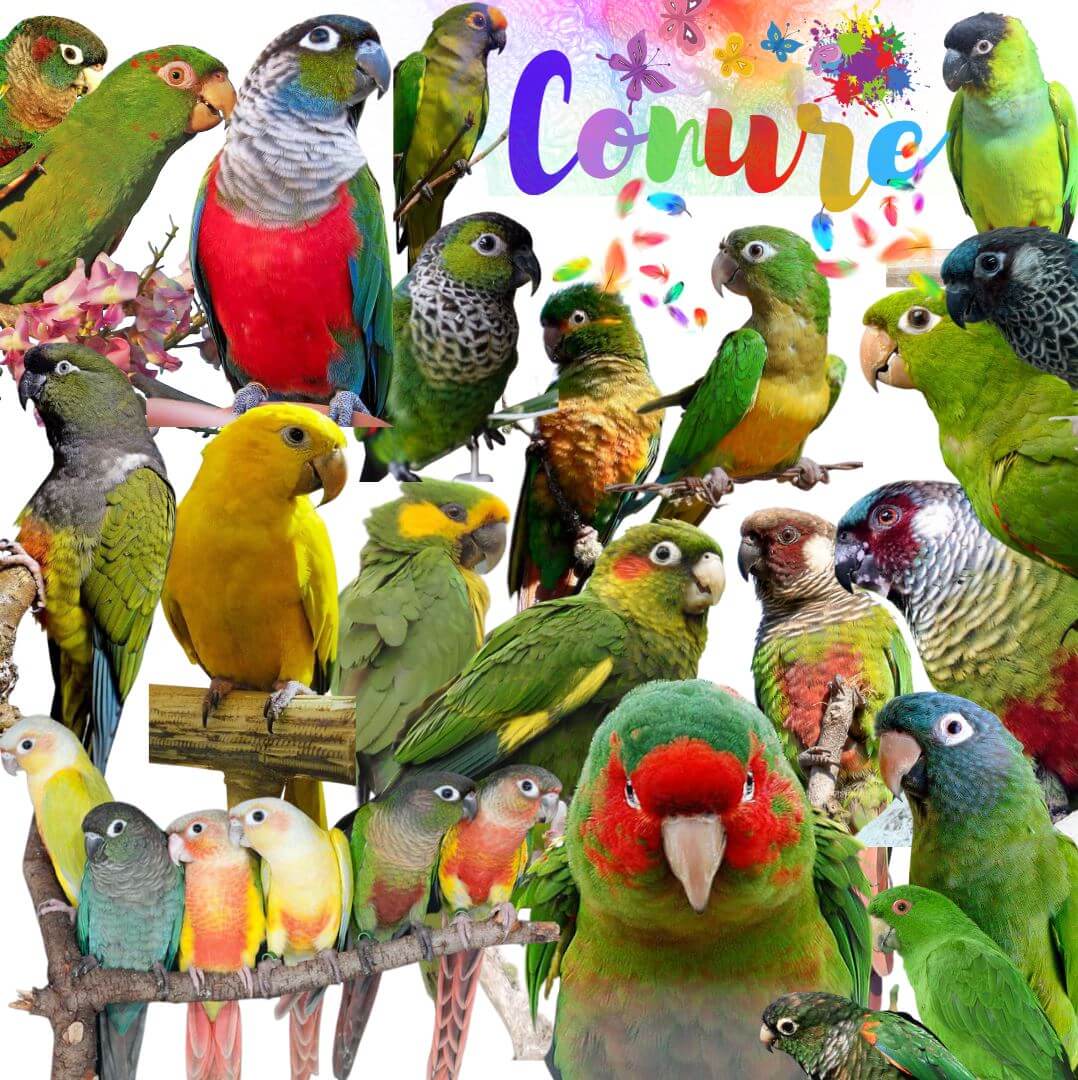
How many years do conures parrots live: The age of the parrot varies according to its type, and generally the duration of the parrot’s life ranges between shortages of about 10 years and longer ages that can reach 70 years or more, The average age of parrots by species is as follows.
The duration of life of small-sized Young parrots like the conure parrot is between 20 to 30 years but the conure lifespan in the wild averages 10 to 15 years due to various environmental factors like care, food, health, habitat, and predators…
This type of parrot is not as common among people as fisher, badge, or even a cockatoo. But it remains one of the most beautiful and best species that you can breed as a pet or for production.
In this topic, we will try to touch on important details, which may wonder anyone new to the world of birds, or who heard the name of the parrot of the conure by chance.
Information about the conure parrot.
They are among the best species of medium-sized parrots, and the most active and mobile to the extent that you sometimes feel that it is a crazy bird from its frequent activity, and it is rapidly taking human life.
Senior parrots are found on all continents, although many attribute it to South America, Mexico, and Brazil in particular because they found this type of parrot there for the first time.
But there are many types whose shape varies from place to place. And this is what we will see in the species of the Kneur parrot.
Conure lifespan
Factors affecting the age of a course parrot
There are many factors that affect the average life span of a parrot within the species itself, and parrots that live in nature have a lower life expectancy than those that provide them with home care, due to their exposure to many different conditions that increase their disease or exposure to predators. Among the most important of these factors are the following:
Where to live
The parrot’s living place is one of the most important factors that contribute to prolonging its average life, the more suitable the place and the availability of health specifications for the bird, the better results it will achieve with regard to its health. It is preferable that the space allocated to him is suitable so that the parrot can spread its wings and move freely, taking care not to leave any containers containing liquids or warm water exposed or any unstable and stable surfaces that may cause harm to the parrot during its movement.
Nutrition
The appropriate diet achieves the maximum age of the parrot and gives the latter excellent health throughout its life, and one of the most important healthy foods for the parrot bird is seeds, grains, and nuts, as well as fresh fruits and vegetables. Care should be taken that the diet of cereals is not based mainly on sunflower seeds, because they contain high levels of fat, which is harmful to the health of the parrot.
Health
Personal health, especially hand hygiene, must be taken care of by the person who cares for the parrot, to ensure that the latter is protected from the transmission of germs that can cause him diseases and weaken his health in general, and it is also very important to take care of the cleanliness of the parrot’s cage, which provides the appropriate healthy environment for him.
Medical care
It is preferable to visit the veterinarian periodically even if there is no apparent problem on the parrot, as there may be unnoticed problems that can worsen and become difficult to deal with, as one of the most prominent characteristics of the parrot and birds, in general, is that they try to hide their weakness or disease and this may harm them if there is no continuous follow-up and periodic medical examination
Types of conure parrots
There are more than 10 species of conure. Golden conure and sun candor are the two most sought-after varieties among breeders. Because they are the most beautiful and there are many other types, mostly green than variations of face color. Like green-cheeked conure, pink-cheeked conure…
All types are characterized by chatter, and semi-loud sound, in addition to high activity.
Senior food.
By nature, the conure parrot lives on seeds and wild fruits scattered among the trees.
As for the food you have, it is as normal as all other types of parrots. Cereals with fresh or dried vegetables and fruits. With the long duration, we noticed that the conure parrot loves dried fruits more.
It is necessary to have a great variety of food in order to keep your bird healthy… You can also bring some parrot mixtures that you can buy from shops that sell bird products.
This topic can also be visited if you want more details about bird food.
Conure lifespan

Care and training.
First of all, if you want the conure just for production, you don’t need to train them… Only provide her with the right place and purpose only.
If you want to raise it as a pet. You can buy him a cage hanging from a pole, or buy him a well-known parrot stand in the form of a wooden pole with a branch on which the bird stands. This way the bird will feel freer and more comfortable, which will make it more and more relevant to you.
You should buy it at a young age, so that it gets used to you, and learns quickly… We advise you to teach him to do some movements and not to speak. Because the senior parrot is more skilled at imitating movements than words.
You should keep in mind that this species is very naturally active, it will keep climbing and biting anything it can reach. Therefore, we recommend that you put a chain for him if you are outside the house, the chain is relatively thin and is placed with his leg like a collar, it is tied to his branch or cage about two meters long so that he does not tear everything he can reach.
He can be taught to fly from his mouth to your hand by feeding him and making a certain sound, placing him on top of the cage or standing away to the end of the room showing him food, then you start making the sound you want him to get used to, as whenever he hears this sound he knows that he must come to you … For those who want more details you can visit this topic.
Reproduction of the conure.
Due to the great difference in species in the Kneur, unstable statistics vary from one species to another.
There are species that are ready for production after a year and a half, and other medium-sized species such as golden and sun, up to 3 years to be ready.
In the golden conjure, the sun conjurer lays 2 to 5 eggs, while some other smaller lobes reach 8 eggs.
The eggs hatch after about 25 days, and small and beautiful chicks appear. Which also needs about 3 weeks to grow up and be able to get out of the nest.
After about a month and a half, the chicks become a little able to rely on themselves in order to eat.
As for the specifications, the cage should be spacious and comfortable, as a cage for all kinds of medium-sized parrots. Approximately one and a half meters long and 0.8 meters high and also wide. As well as for the nest or the whitewash. It should be large in size. Not less than 0.3 meters wide and long, and 0.5 meters deep, because the conure bird likes to have a deep nest to feel comfortable.
The price of a conure parrot.
The most expensive type is the golden conure, medium size, and one of the most beautiful colors, its price starts from $ 500 and above, depending on age, health, and veterinary certificate.
- Then the sun conure starts at about $420.
- Then the pineapple conure, which is priced at about $300.
- Then come other types that start from $150 onwards.
Prices may vary by country and abundance, but in our opinion, it remains the Golden conure No. 1, then the sun and pineapple. Due to their beautiful color and larger size than other species.
Additional tips.
- Do not leave your bird alone for a long time so that it does not feel lonely or depressed.
- Distinguishing between male and female is not easy, it is better to visit the veterinarian for a synthetic examination, which enables him to determine the sex, as well as obtain official papers from the veterinarian that it is a bird that has been examined.
- Try to take greater care of the cleanliness of the bird and its whereabouts to avoid infectious diseases and viruses.
- Do not neglect your bird, especially in the stage of its breeding and training.
- Never neglect the healthy nutrition of your bird.
- Place several toys in the cage or stand of your parrot.
- It is recommended that you preserved your birds annually at the veterinarian if you are able to do so.
Conure Care Guide Everything You Need To Know
SOURCE:BirdNerdSophie





















